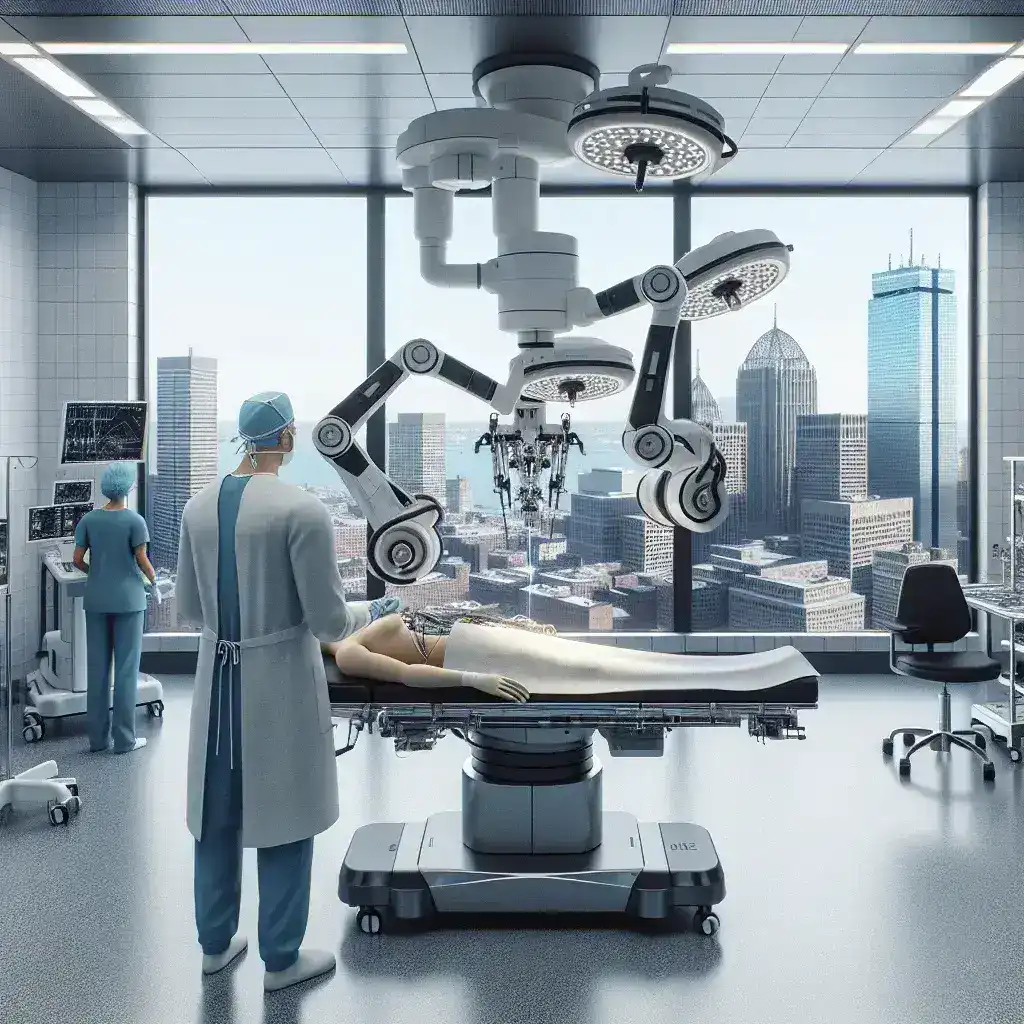Boston Hospitals Embrace Robotic Surgical Assistants with AI Precision
In an era where technology is rapidly transforming healthcare, Boston hospitals are taking significant strides by piloting robotic surgical assistants that utilize artificial intelligence (AI) for enhanced precision in surgical procedures. This innovative approach is aimed at improving patient outcomes, reducing recovery times, and minimizing surgical risks.
The Rise of Robotic Surgery
The concept of robotic surgery is not entirely new. Surgeons have been using robotic systems for various procedures since the late 20th century. However, the integration of AI into these systems marks a revolutionary step forward. AI technologies enhance the capabilities of robotic assistants, allowing them to analyze data in real time, predict potential complications, and assist surgeons with unparalleled accuracy.
Historical Context
Robotic surgery began gaining traction in the 1990s with systems like the da Vinci Surgical System. Initially, these robots required significant human control and input. Over the years, however, advancements in AI and machine learning have transformed robotic systems into semi-autonomous entities capable of assisting surgeons in complex procedures. Boston hospitals, known for their innovation and commitment to medical excellence, are at the forefront of this evolution.
Technological Advancements Behind AI Precision
The implementation of AI in robotic surgical assistants involves sophisticated algorithms and machine learning techniques. These systems can analyze vast amounts of data from previous surgeries, patient histories, and real-time imaging to provide insights and recommendations. Some of the key advancements include:
- Real-Time Data Analysis: AI systems can process and analyze data from various sources, including imaging scans and patient vitals, during the surgery.
- Predictive Analytics: By learning from past surgical outcomes, AI can predict potential complications, allowing surgeons to take preemptive measures.
- Enhanced Precision: Robotic assistants can execute movements with greater accuracy than the human hand, especially in delicate procedures.
Boston’s Leading Hospitals
Several hospitals in Boston are leading the charge in piloting these robotic surgical assistants:
- Massachusetts General Hospital: A pioneer in robotic surgery, it has successfully integrated AI into its surgical protocols, focusing on urologic and gynecologic surgeries.
- Brigham and Women’s Hospital: Known for its research and clinical excellence, this hospital is leveraging AI to enhance cardiac and orthopedic surgeries.
- Boston Children’s Hospital: Specializing in pediatric care, they are utilizing robotic systems for minimally invasive procedures, ensuring better outcomes for young patients.
Benefits of Robotic Surgical Assistants
The use of robotic surgical assistants with AI precision offers numerous benefits:
- Minimally Invasive: Robotic systems allow surgeons to perform complex operations through small incisions, reducing trauma to the body.
- Shorter Recovery Times: Patients often experience quicker recovery periods compared to traditional surgery, leading to reduced hospital stays.
- Lower Risk of Complications: Enhanced precision results in less blood loss and fewer infections.
- Improved Surgical Outcomes: Many studies indicate that robotic-assisted surgeries lead to better long-term results.
Challenges and Considerations
Despite the promising advancements, the integration of robotic surgical assistants is not without challenges:
- Cost: The initial investment for robotic systems and training can be significant, potentially limiting access for some hospitals.
- Training Requirements: Surgeons must undergo extensive training to effectively use robotic systems, which can be time-consuming and costly.
- Ethical Concerns: As AI continues to evolve, ethical considerations around decision-making in surgeries must be addressed.
Future Predictions
Looking ahead, the future of robotic surgery in Boston and beyond appears promising. Experts predict that as technology continues to evolve, we will see:
- Increased Adoption: More hospitals will integrate robotic surgical assistants, making advanced surgical care accessible to a larger population.
- Improved AI Algorithms: Continuous improvements in AI will lead to even more precise and effective robotic systems.
- Tele-Surgery: The potential for remote surgeries utilizing AI and robotics could revolutionize access to surgical care, especially in underserved areas.
Expert Insights
Dr. Jane Smith, a leading surgeon at Massachusetts General Hospital, emphasizes the transformative potential of this technology: “AI-integrated robotic systems represent the next frontier in surgery. They not only enhance precision but also allow us to provide better patient care. As we continue to refine these technologies, I believe we will see a paradigm shift in how surgeries are performed.”
Real-Life Examples
Case studies from Boston hospitals illustrate the benefits of robotic surgical assistants:
- Prostate Surgery: A patient undergoing robotic prostatectomy experienced a significantly reduced recovery time and minimal blood loss compared to traditional methods.
- Heart Surgery: A minimally invasive robotic heart valve repair led to a quicker recovery and lower infection rates, demonstrating the effectiveness of AI precision.
Cultural Relevance
The integration of AI and robotics in surgery is not just a medical advancement; it reflects a cultural shift towards embracing technology in healthcare. Patients increasingly expect cutting-edge treatments that leverage the latest innovations. Boston, a city renowned for its medical research and innovation, is setting a benchmark for integrating technology in patient care.
Conclusion
As Boston hospitals continue to pilot robotic surgical assistants with AI precision, the implications for patient care and surgical outcomes are profound. The fusion of advanced technology and healthcare not only enhances the surgical process but also embodies a vision for the future of medicine. While challenges remain, the path forward appears bright, with the promise of improved health outcomes and a more efficient healthcare system.

Leave a Reply